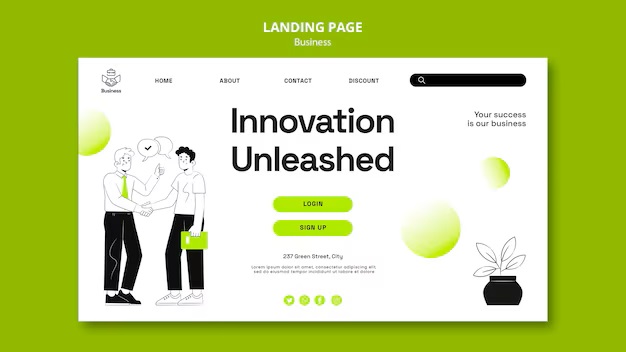The recent transaction involving a prominent player in the financial services sector highlights a significant adjustment in portfolio management. By divesting parts of its business, this entity aims to streamline operations and focus on core areas that promise enhanced profitability and customer engagement.
Such decisions are often influenced by shifting market dynamics, regulatory pressures, and evolving consumer preferences. The buyer, known for its expertise in managing legacy assets, presents an opportunity to revitalize these segments, ensuring they remain competitive and aligned with contemporary standards.
As this unfolding scenario illustrates, adapting to changes within the landscape is essential for sustaining growth and achieving long-term objectives. Stakeholders are keenly observing the ramifications of this transaction, which not only emphasizes financial prudence but also strengthens competitive positioning for both parties involved.
Overview of Zurich Insurance’s Strategic Decision
A recent high-profile transaction in the financial sector has attracted significant attention, showcasing a deliberate and calculated direction adopted by a major player. This decision reflects a broader trend, highlighting shifts in operational focus and resource allocation within the industry. By opting to divest certain segments, the firm aims to enhance its competitive positioning and streamline its core operations.
Rationale Behind the Transaction
The underlying motivations for this significant decision are multifaceted. Reduction of complexity and improved concentration on growth areas are at the forefront. The firm’s leadership envisions reallocating resources to more lucrative initiatives, thereby maximizing shareholder value and ensuring long-term sustainability.
Implications for the Industry
This divestiture is not merely a reflection of internal strategies; it also signals changing dynamics within the sector. Competitors may need to adapt to this newly formed landscape, while potential impacts on customer relations and market positioning are yet to be fully realized. Observers suggest that this could lead to increased consolidation and further strategic realignments among key players.
| Aspect | Details |
|---|---|
| Focus Areas | Intensified emphasis on core operations and growth segments |
| Resource Allocation | Prioritization of investments in high-potential business units |
| Market Dynamics | Potential shifts in competitive landscape leading to consolidation |
| Stakeholder Impact | Reinforcement of value creation for shareholders |
Impact on the German Insurance Landscape
The recent transaction involving the transfer of an existing portfolio to a new entity has significant implications for the financial sector in Germany. This development reflects a larger trend towards consolidation and specialization within the industry, possibly resulting in greater stability and efficiency for consumers and providers alike.
Market Consolidation and Efficiency
This arrangement may lead to a more streamlined approach in managing assets, allowing for improved risk management and enhanced operational effectiveness. As players in this arena focus on their core offerings, clients might benefit from tailored solutions that better meet their individual needs.
Consumer Confidence and Future Growth
Furthermore, the shift could foster increased confidence among policyholders, as they see established entities committing to long-term strategies. This reassured atmosphere may inspire growth and innovation in product offerings, setting the stage for a dynamic evolution within the sector.
Viridium’s Role in the Acquisition
This section explores the pivotal function played by a prominent player in the recent transaction involving a portfolio of policies. By understanding their strategic involvement, one can better appreciate the implications of this agreement for both parties and the wider sector.
- Expertise in Portfolio Management: The acquiring entity has extensive experience in managing large collections of policies, enabling effective integration and optimization of assets.
- Focus on Profitability: With a strong emphasis on enhancing financial returns, their approach is aimed at maximizing the value derived from the acquired portfolio.
- Innovation in Services: The company is known for introducing innovative solutions and improving customer engagement, which can foster growth and client satisfaction post-acquisition.
- Market Positioning: Their strategic expansion solidifies their position within the industry, broadening their reach and establishing a stronger competitive advantage.
Overall, this acquisition underscores the ability of key players to adapt and thrive in an evolving landscape. The integration of this portfolio reflects broader trends and opportunities within the financial service sector.
Future Prospects for Zurich Insurance
As the organization navigates through recent changes, its outlook remains optimistic. By adapting to evolving consumer needs and regulatory frameworks, there are numerous opportunities for growth and enhancement. Embracing innovation and leveraging technology will play crucial roles in shaping future offerings and improving operational efficiency.
The company’s strategy reflects a commitment to sustainability and resilience in a competitive landscape. Focusing on core competencies while exploring partnerships can further strengthen its position. This adaptive approach may also facilitate entry into emerging markets and diversification of services, enhancing overall portfolio stability.
| Opportunity | Potential Impact |
|---|---|
| Technological Advancements | Increased efficiency and customer engagement |
| Market Diversification | Reduction of risks associated with market fluctuations |
| Sustainable Practices | Appeal to socially conscious consumers |
| Strategic Alliances | Enhanced service offerings and competitive edge |
Looking ahead, focusing on innovation, adaptability, and stakeholder engagement will be essential. By staying proactive in addressing market shifts, the entity can ensure long-term viability and success in a dynamically evolving global environment.
Customer Implications of the Transition
The recent exchange of assets between companies in the financial sector has brought about significant changes for clientele. As organizations undergo transitions, it is crucial to understand how these adjustments may affect individuals’ experiences, policies, and overall service quality.
Customers can anticipate several key developments as a result of this transfer:
- Policy Continuity: Existing contracts will usually remain effective, ensuring that consumers experience minimal disruption to their coverage and benefits.
- Service Adaptation: As responsibilities shift, clients may notice changes in service delivery, including customer support and claim processing procedures.
- Revised Offerings: The welcoming party might introduce new products or modify existing services, providing additional options for customers.
- Communication Enhancements: Clear communication will be essential during this transition, helping clients stay informed about what they can expect moving forward.
- Potential Rate Adjustments: Pricing structures could change, which may affect premium costs over time, making it important for consumers to review their statements regularly.
In conclusion, while change can bring uncertainty, understanding these implications can aid customers in navigating their options and making informed decisions about their coverage. Proactive engagement with representatives and staying updated on developments will empower clients throughout this transitional phase.
Market Reactions to the Deal
The recent transaction involving the divestment of a significant portfolio has captured considerable attention across various sectors. Analysts and stakeholders are closely monitoring how this development impacts the competitive landscape and influences consumer perceptions. Reactions from investors, industry peers, and financial experts highlight a myriad of viewpoints, reflecting the complexities of the shifting environment.
Investor Sentiment
Following the announcement, the financial community responded with a mix of optimism and skepticism. Some investors expressed confidence, anticipating that the decision will lead to increased operational efficiency and enhanced profitability in the long term. On the other hand, concerns emerged regarding potential disruptions and the strategic alignment of the acquiring entity.
Industry Perspectives
Experts within the field have weighed in on the implications for competitors. Several analysts suggest that this reallocation may trigger a wave of similar transactions, as organizations seek to refine their focus and strengthen their core offerings. The move has also prompted discussions about market consolidation and the evolving nature of customer needs.
Q&A: Zurich insurance sell german back book viridium
What does it mean for Zurich Insurance to sell its German back book to Viridium?
When Zurich Insurance sells its German back book to Viridium, it means that they are transferring a portion of their existing insurance policies and liabilities in Germany to another company. The back book refers to policies that are already in force and typically represent established, ongoing obligations rather than new business. This strategic move allows Zurich to streamline its operations, reduce exposure to certain risks, and free up capital for new initiatives. For Viridium, acquiring the back book may represent an opportunity to expand their portfolio and leverage their expertise in managing legacy insurance products.
Why would Zurich Insurance choose to divest its German business segments?
Zurich Insurance’s decision to divest its German reinsurance back book can be attributed to several strategic considerations. Firstly, focusing on core areas of growth allows Zurich to allocate resources more effectively and improve its overall financial performance. Additionally, the sale could be part of a larger trend within the insurance industry where companies are increasingly seeking to unload non-core or underperforming assets. By doing so, Zurich may be looking to mitigate risks associated with outdated or complex insurance policies and redirect funds towards more profitable sectors or innovative products. Overall, this move aligns with the broader strategy of maximizing shareholder value and enhancing operational efficiency.
How does the acquisition by Viridium impact policyholders of Zurich Insurance in Germany?
For policyholders of Zurich Insurance in Germany, the acquisition by Viridium may not result in immediate changes to their existing policies or coverage terms. Typically, such transactions involve a transition period during which the new owner assumes responsibility for managing the policies. After the sale, policies will still be honored under the terms that policyholders originally agreed to, but service and support may shift to Viridium’s operations. It is crucial for policyholders to stay informed about any communications from both Zurich and Viridium regarding the transition, as well as any potential changes in claims handling, customer service contacts, and overall management of their policies.
What are the strategic implications of this sale for the insurance market as a whole?
The sale of Zurich’s German back book to Viridium highlights an ongoing trend of consolidation and specialization within the insurance market. Such transactions often signal a shift in how insurance companies manage their portfolios, particularly when it comes to legacy products that are no longer aligned with their strategic goals. For the broader market, this move may encourage other insurers to reevaluate their own back books and consider similar divestitures or partnerships. It may also catalyze increased competition among firms like Viridium that focus on running off old business while optimizing their operational efficiencies. Over time, this can lead to a more streamlined insurance industry, fostering innovation and better service as companies concentrate on their core competencies and respond more agilely to market demands.
What were Zurich Insurance Group’s objectives in planning the sale of its life insurance back book in Germany to Viridium Holding, and why did the deal fall through?
Zurich Insurance Group had planned to sell its 20 billion Zurich life legacy back book in Germany to Viridium Holding as part of its objectives to reduce capital intensity and lower its exposure to interest rates. This traditional life insurance back book, known as the Zurich life legacy back book, includes various life insurance policies, annuity, and endowment products. However, Zurich said the deal fell through due to concerns raised by the German regulator, BaFin, as well as other considerations relating to capital management. While the sale has not materialized, Zurich remains committed to finding a solution for this portfolio and will explore options in due course.
Why is Zurich Insurance Group’s exploration of options for the legacy back book in Germany significant, and how does it align with the company’s capital management goals?
Zurich Insurance Group’s exploration of options for its German life insurance book is significant because it aligns with the group’s broader financial targets, aiming to reduce the capital intensity of its business. By offloading the Zurich life legacy back book in Germany, Zurich aims to mitigate its exposure to interest rate fluctuations, especially as these rates have risen in recent years. As Zurich said, the plan to offload this 20 billion portfolio reflects its objectives to “create a brighter future” by focusing on portfolios that are more capital-efficient. This approach not only addresses current financial targets but also supports Zurich’s broader sustainability goals, including targeting net-zero emissions by 2050.
What were the objectives of Zurich Insurance Group’s plan to sell its legacy traditional life insurance back book in Germany, and why did the deal fall through?
Zurich Insurance Group aimed to sell its 20bn legacy traditional life insurance back book in Germany to Viridium Group, an insurance consolidator specializing in managing legacy life portfolios. This sale was intended as part of Zurich’s efforts to “reduce the capital intensity” of its holdings, lower exposure to interest rates, and focus on more capital-efficient portfolios. However, the deal fell through due to regulatory considerations and concerns raised by BaFin, the German financial regulator. Zurich’s plan was also impacted by the current ownership structure, which includes stakeholders in the private equity firm Cinven, as well as adjustments to financial targets or capital management plans following the COVID-19 pandemic. A person familiar with the matter indicated that Zurich continues to explore other options in alignment with its purpose to “create a brighter future” and meet its financial objectives.
What was the significance of Zurich Insurance’s decision to offload its life portfolios in 2022, particularly in relation to the deal with Eurovita and Viridium Holding?
Zurich’s update came on Tuesday and highlighted its plan to offload life portfolios, reflecting its purpose to ‘create a brighter future’. The sale involved a deal to sell to Viridium, an Italian life insurer, which had fallen through after the insurance consolidator pulled out due to considerations relating to the transaction. Chief Financial Officer George Quinn noted that this move is an important step in our efforts to lower our exposure to interest rates and to focus on one of the most responsible and impactful businesses in the world. The deal was valued at approximately 500 million euros, emphasizing Zurich’s objectives as a leading multi-line insurer serving its employees and stakeholders effectively.
What were the implications of Zurich Insurance’s announcement on Tuesday regarding its plan to offload its German life book to Viridium Holding?
Zurich Insurance’s sale of its German life book was reported by Reuters and is part of the company’s broader objectives to streamline operations and focus on core areas. The announcement on Tuesday said its plan to offload life portfolios and to lower exposure to interest rates is aligned with the strategy that Zurich aspires to be one of the leading insurers in the market. However, it was noted that Viridium Holding has fallen short in finalizing the deal, which raises questions about the future of this transaction. Viridium said that the complexities involved in underwriting the portfolios contributed to the delay, impacting both companies and their employees, as Zurich is headquartered in Zurich and collaborates with insurers such as Hannover. This initiative reflects Zurich’s commitment to ‘create a brighter future’ for its stakeholders.
What are the primary objectives of Zurich Insurance Group in terms of strategic growth and partnerships?
The objectives of Zurich Insurance Group focus on advancing sustainable growth and operational resilience, ensuring that it meets both client and regulatory expectations. Said a person familiar with the company’s priorities, Zurich aims to achieve these objectives by emphasizing employee engagement and robust partnerships within the insurance industry. Headquartered in Zurich, the company collaborates closely with prominent insurers, including Hannover, to foster innovation and uphold high standards across the sector. By supporting employees and fostering partnerships, Zurich Insurance Group strengthens its role as a global leader in responsible insurance practices.
What role do employees play in the strategic vision of Zurich Insurance Group, particularly in relation to its partnerships?
Employees play a crucial role in the strategic vision of Zurich Insurance Group, which is headquartered in Zurich. The company recognizes that a motivated and engaged workforce is essential for achieving its long-term objectives. Along with insurers Hannover, Zurich focuses on fostering a collaborative culture that empowers employees to contribute innovative ideas and solutions. This partnership enhances Zurich’s ability to deliver high-quality services and products, ensuring that employees feel valued and integral to the company’s success. By prioritizing employee engagement and collaboration, Zurich aims to strengthen its competitive position in the insurance market.








